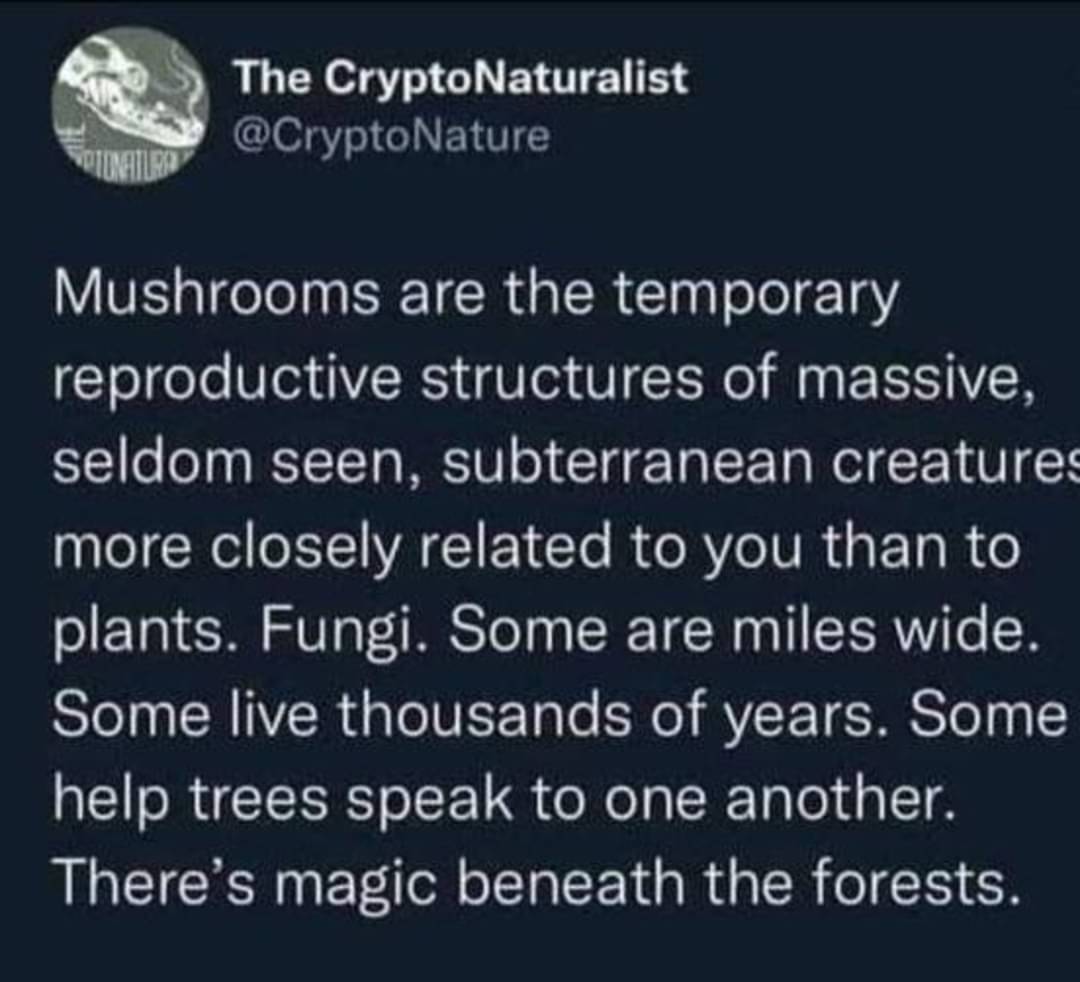this post was submitted on 30 Oct 2024
98 points (98.0% liked)
Fungi: mycelia, mushrooms & more
169 readers
1 users here now
This is a community for information and discussions on
- Mycorrhizal networks
- Mycoremediation for land restoration, water mycofiltration etc
- Biodegradable mycelium-based materials (building blocks, textiles, alternatives to plastic, to name a few)
- Fungal technology & biotechnology
- Medicinal uses
And so much more.
Some related local communities
Credits
- Icon: Studio Klarenbeek & Dros
- Banner: Pauline Moss
founded 5 months ago
MODERATORS
you are viewing a single comment's thread
view the rest of the comments
view the rest of the comments

Yes, I'm a long-term fan of the mycelium, but when it gets presented as otherworldly and whatnot it turns me off a bit. The pigment funnel/electron transport chain in a plant's photosynthetic apparatus is mind-blowing but doesn't get the same kind of mysticism treatment on the internet. Maybe I'm just a curmudgeon.
While possibly curmudgeonly, I see your point!
I personally am of the opinion that all of earth and especially all life forms should get the mysticism/wonderment treatment (that includes the photosynthesis in a big way!). I just think for a lot of people (me included) it's easier with fungi because they're usually not as neatly explained throughout school, and thus not in the "normal stuff, boring" category.
I hope it's a kind of gateway wonderment for more nature appreciation in general :)
I bought a large textbook called "Fungi" for this very reason, but have yet to find the time to sit down and read all 600 pages.
Hope you'll find the time and enjoy it, and that it's totally not related to DANGEROUS Fake Foraging Books Scam on Amazon
It's a university textbook! So about fungal cell physiology and whatnot. (I will never be brave enough to forage for wild mushrooms.)